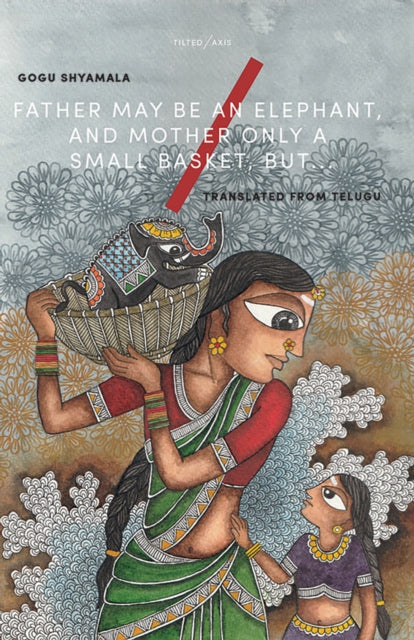1
/
of
1
Father May Be an Elephant, and Mother Ma
Father May Be an Elephant, and Mother Ma
Author(s):
Gōgu Śyāmala
ISBN: 9781911284741
Format: Paperback
Publisher:
Genre and Subgenre:
Gōgu Śyāmala
ISBN: 9781911284741
Format: Paperback
Publisher:
Genre and Subgenre:
Low stock
Regular price
RM59.90
Regular price
Sale price
RM59.90
Quantity
Couldn't load pickup availability
Author: Gōgu Śyāmala
ISBN: 9781911284741
Format: Paperback
Publisher: Tilted Axis
Dalit feminist stories of a south Indian village that dissolve the borders of realism, allegory and political fable.
A young girl is sent away to school to save her from being declared the sexual property of the village’s upper-caste men. The village water tank laments to a passing child. A Brahmin boy is considered ‘polluted’ by the touch of a Dalit girl – the same action that saved his life.
Rendered with idiomatic vitality, humour and lightness, these stories revel in rural childhood without nostalgia or romanticism, forcing the reader to question their expectation of violence in the representation of certain lives, and of what the short story can be and do.
Shifts in tone and perspective reveal relationships – between the different castes that make up a village, between an individual and the wider community, between identities and the seasonal rhythms of the land. Imbued throughout with a Dalit feminist philosophy that is above all a philosophy of life, to be lived with wit, ingenuity, and defiance.
View full details
ISBN: 9781911284741
Format: Paperback
Publisher: Tilted Axis
Dalit feminist stories of a south Indian village that dissolve the borders of realism, allegory and political fable.
A young girl is sent away to school to save her from being declared the sexual property of the village’s upper-caste men. The village water tank laments to a passing child. A Brahmin boy is considered ‘polluted’ by the touch of a Dalit girl – the same action that saved his life.
Rendered with idiomatic vitality, humour and lightness, these stories revel in rural childhood without nostalgia or romanticism, forcing the reader to question their expectation of violence in the representation of certain lives, and of what the short story can be and do.
Shifts in tone and perspective reveal relationships – between the different castes that make up a village, between an individual and the wider community, between identities and the seasonal rhythms of the land. Imbued throughout with a Dalit feminist philosophy that is above all a philosophy of life, to be lived with wit, ingenuity, and defiance.


